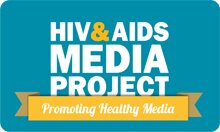Mosquitoes Can Transmit HIV
There are a number of reasons why mosquitoes cannot transmit HIV.
Firstly the mosquitoes’ mouth parts do not operate like a hypodermic needle. The tube which injects the host with saliva is separate from the canal which the mosquito uses to suck blood from the same host. Therefore blood only flows into the mosquito and only saliva is injected; blood is not flushed out of the same canal.
Insect-borne diseases like Encephalitis and malaria are spread because they multiply within the mosquito, these diseases then move into the insect’s salivary glands and are injected into the host with the saliva. If a mosquito feeds on an HIV-positive person the virus cannot survive and replicate within the mosquito’s gut as HIV requires specialist cells found only in humans in order to multiply . HIV is treated as food and digested.
HIV circulates in the blood at lower levels than malaria and other inset-borne diseases. The mosquito does not take enough units of HIV from the infected person to initiate infection.
Even if it was possible for the mosquito to inject HIV into an uninfected person, the person would have to be bitten by ten million mosquitoes who had previously been feeding on an HIV positive host in order to receive one unit of HIV. For this reason squashing or accidentally swallowing a mosquito does not put one at risk of contracting HIV, because there is not enough HIV positive blood within the mosquito for a person to contract the disease.






